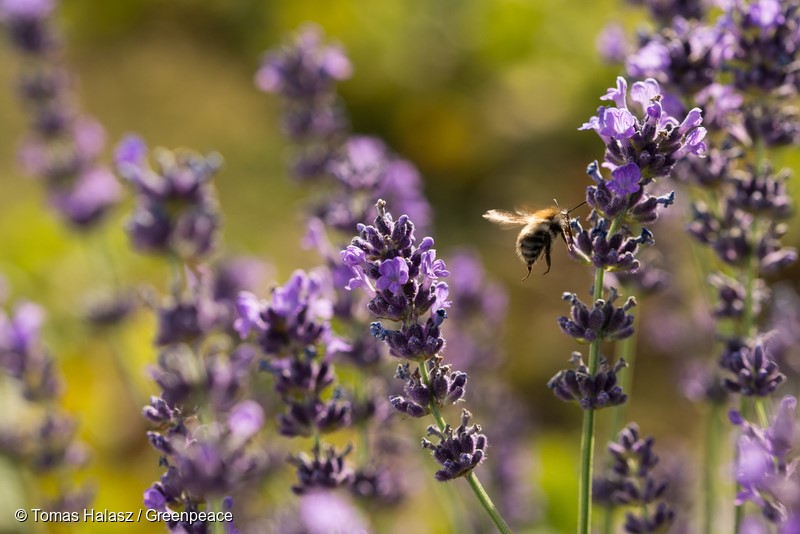Greenpeace’s comment on new findings
Exeter, 29 June 2017 – A major industry-funded field study [1] assessing the impacts of neonicotinoid pesticides clothianidin and thiamethoxam on honeybees and wild bees confirms that these chemicals harm these species. The study is due for publication in the international journal Science on 30 June.
Commenting on the findings, Dr David Santillo, senior scientist with the Greenpeace Research Laboratories at Exeter University, said: “This novel study confirms that adverse effects on individual bees and bee colonies found in high-dose laboratory studies are also observed in the fields. It shows that industry claims that neonicotinoids do not harm bees at field-relevant concentrations are baseless”.
Franziska Achterberg, Greenpeace EU Food Policy Director said: “This industry-funded study adds to the mounting evidence that neonicotinoid insecticides harm managed and wild bees. The case for a complete ban on these pesticides is now unassailable. Bees are a vital pillar of our ecosystem and food chain – we cannot afford to take any chances with their well-being.”
In March, the European Commission proposed an almost complete ban on imidacloprid, clothianidin and thiamethoxam [2]. The proposals are based on an assessment by the European Food Safety Agency (EFSA) that bees could be harmed not only via the treated crop but also via residues that persist in the wider landscape. Today’s study confirms this concern.
Notes:
[1] Woodcock, B.A., Bullock, J.M., Shore, R.F., Heard, M.S., Pereira, M.G., Redhead, J., Ridding, L., Dean, H., Sleep, D., Henrys, P., Peyton, J., Hulmes, S., Hulmes, L., Sárosspataki, M., Saure, C. & Pywell, R.F., ‘Country-specific effects of neonicotinoid pesticides on honeybees and wild bees,’ Science, VOL 356, ISSUE 6345, DOI: 10.1126/science.aaa1190, published online 30 June 2017.
[2] Greenpeace press release, 23 March 2017: http://www.greenpeace.org/eu-unit/en/News/2017/Commission-takes-major-step-to-ban-three-neonics/
Contacts:
Greenpeace ‘food for life project’, EU communications coordinator: Luisa Colasimone, +32 (0)479 100 067, [email protected]
Greenpeace Research Laboratories, Senior Scientist: Dr David Santillo, +44 1392 247920, [email protected]
Greenpeace is an independent global campaigning organisation that acts to change attitudes and behaviour, to protect and conserve the environment and to promote peace. Greenpeace does not accept donations from governments, the EU, businesses or political parties.

